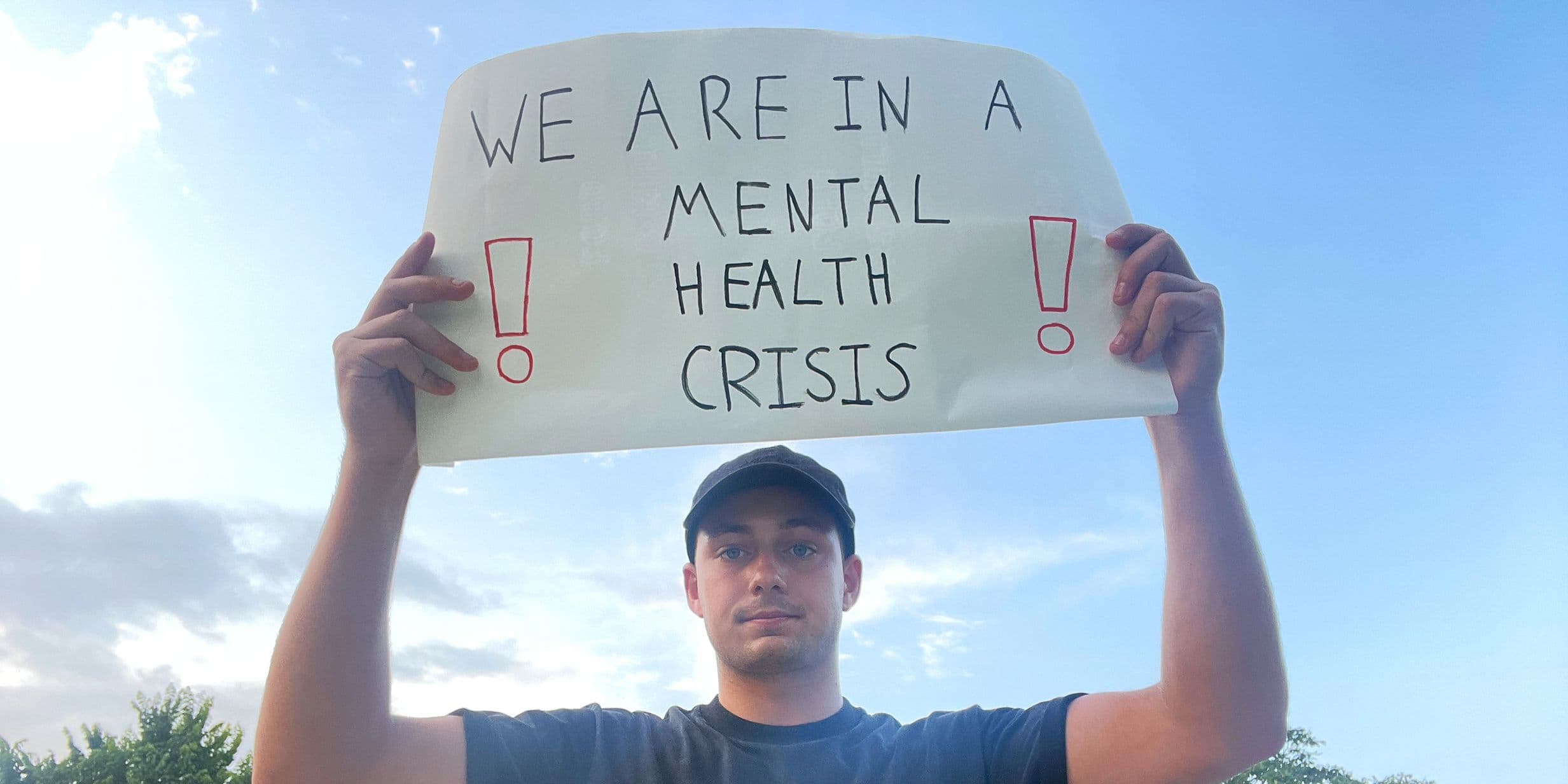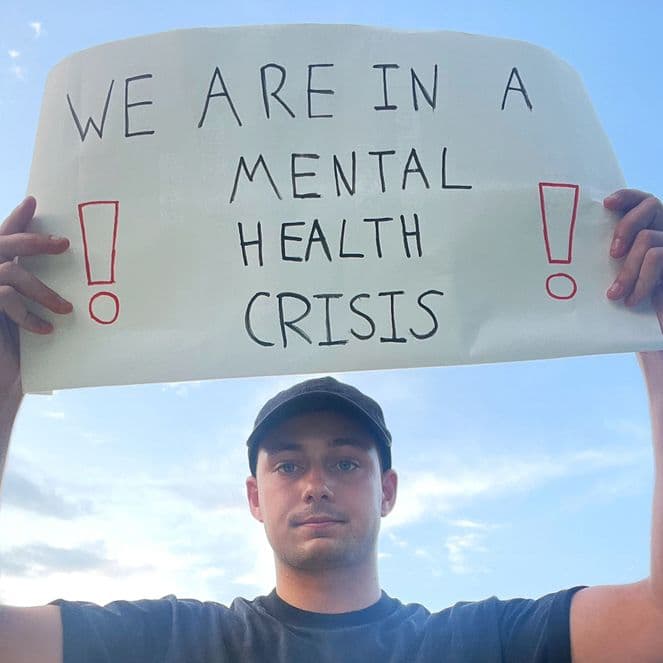Histoires
Memory Architects: the mental health campaigner – Ben West
Meet the campaigner turning personal grief into policy change – and rewriting how we talk about mental health


Histoires
Meet the campaigner turning personal grief into policy change – and rewriting how we talk about mental health


For this edition of Memory Architects, we spotlight Ben West, a mental health campaigner, speaker and author whose work is transforming how society talks about emotional wellbeing. Ben’s advocacy stems from deeply personal experience, and his mission is rooted in ensuring that no one feels alone in their struggles.
Mental health, like memory, is shaped by the stories we tell – both to ourselves and to others. Through his campaigns, writing and public speaking, Ben helps people confront difficult emotions, challenge stigma and build healthier narratives around mental health. His work encourages open dialogue and vulnerability, turning painful memories into catalysts for change and connection.
Ben’s impact lies not only in raising awareness, but in helping individuals reframe their experiences; transforming memory from something that haunts, into something that heals.
Ben ran an ultramarathon in Scotland to raise money for Shout, the national crisis text line
Memory is one of the most powerful forces in shaping who we are and what we do. My life and work now has been largely impacted by one single, incredibly painful memory. In January 2018, my younger brother took his own life at the age of 15. The memories of that time are awful. Throbbing blue lights of ambulances lit up my childhood home in a way I’ve never been able to unsee. At 17 years old I had to grow up very quickly, as in an instant everything changed – and the whole world suddenly became unfamiliar to me.
For some time, I couldn’t think too much about any of it. My brain did what it needed to do to survive and blocked a lot out. But as details emerged about what had gone on leading up to his death, a new feeling began to bubble up inside me: utter indignation. Sam should not have died. For the last seven and a half years, I’ve been working to improve mental health and prevent suicide. I’m currently working with an NHS trust to redesign its mental health services, and I’ve successfully campaigned in Parliament to change national teacher training so every trainee teacher receives a standard education in mental health.
I talk about Sam as much as I can. Suicide can affect anyone. I never thought this would happen to our family; I never thought I’d be doing this. But here I am, fighting for change, powered by the memory of a kind, loving, funny, talented young man who wasn’t given the opportunity to get better. My goal now is to make sure that opportunity exists for the next Sam.
Ben (right) with his brother Sam, taken a few months before he was diagnosed with depression
There have been a few key moments that changed what I knew about mental health. One was the first time I met someone who had attempted suicide and survived. I learned how complex the suicidal brain is, how far removed it is from how our “normal” brains work. I’ve found a lot of comfort in understanding that side of the story and being able to let go of some of the anger and guilt.
I also took up running soon after Sam died. I hated running at school, it was always used as punishment. “West, stop talking or you’re doing laps.” But one day I found myself in a pair of trainers, and I loved it. That love eventually led me to run an ultramarathon in Scotland in 2025, something I never thought I’d do. It taught me so much about my own mental health. At that distance and terrain, everyone’s body eventually protests and begs to stop, what runners call entering the pain cave. I learned more about myself in those last 5km than anywhere else. I was in pain, exhausted and desperate to stop. So why didn’t I? It’s about reward, and what you’re doing it for. Studies show pain feels less severe when it’s linked to purpose. In life, it’s vital to have a grasp of what that purpose is, to understand what you’re doing it for and why you keep going.

Ben has successfully campaigned in Parliament so every trainee teacher receives a standard education in mental health

He works with the London Air Ambulance team to provide support to families bereaved by sudden death

To mark World Suicide Prevention Day, Ben raised money for Shout
The narrative that needs changing most urgently is that those who experience poor mental health are weak or have done something to become unwell. In my work, I meet many people who are, or have been, very unwell, and they’re some of the strongest people I’ve ever met. The experiences they get through are remarkable. I’m always inspired by people who share their stories, but I also feel a deep sense of injustice that they’re still painted as weak. It angers me that they’re so often cast aside as dependent or ungrateful, tropes that should have been left behind decades ago.
Many of us still live with unconscious biases, and as we’ve seen in wider conversations about racism or sexism, it takes active effort from all of us to correct them. People don’t choose to be unable to get out of bed, to have psychosis or to live with anxiety. Many are simply unlucky – and they do an incredible job of surviving it.
Ben with supporters during his 1 Million Steps for Suicide Prevention challenge
Even considering turning pain into purpose is an incredible thing to do. There’s immense power in turning towards what hurts you and saying, “I do not accept this. I will not turn away from this and I’m going to change it for someone else.” What makes campaigning so hard is making yourself public, presenting to the world a part of yourself that’s still wounded. There’s immense vulnerability and strength in using your experience to do good.
My advice to new campaigners is to be specific. I speak to so many dedicated people who want to do good work, but their missions are too broad. Think about your story and your experience, and identify specific things that went wrong or could have been better. Then build your message around that one thing. Instead of trying to reduce NHS waiting times, for instance, perhaps your approach is to create a requirement for trusts to provide digital support between referral and treatment. The more specific you are, the more powerful your work will be. Real change always starts with a single, focused idea.
In a world of suffering and injustice we need good people with good ideas to do good things. I work for Sam to prevent suicide and improve mental health. Everyone has a story, what is your why? What do you want to change? I hope my story can be evidence that if you show up and stand up for what you believe in, you can create change.
To learn more about Ben’s work, visit Benwest.org.uk.
If you need to talk to someone, help is available. You can text “SHOUT” to 85258 for free, confidential support from Shout, 24 hours a day. You can also contact Samaritans on 116 123 for free at any time.